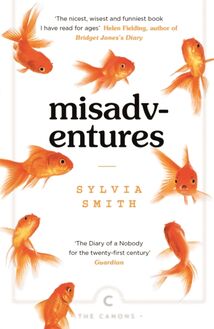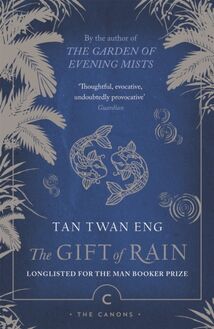Bachelors , livre ebook
100
pages
English
Ebooks
2015
Vous pourrez modifier la taille du texte de cet ouvrage
Obtenez un accès à la bibliothèque pour le consulter en ligne En savoir plus
Découvre YouScribe en t'inscrivant gratuitement
Découvre YouScribe en t'inscrivant gratuitement
100
pages
English
Ebooks
2015
Vous pourrez modifier la taille du texte de cet ouvrage
Obtenez un accès à la bibliothèque pour le consulter en ligne En savoir plus
Publié par
Date de parution
03 décembre 2015
Nombre de lectures
2
EAN13
9781782117568
Langue
English
Publié par
Date de parution
03 décembre 2015
Nombre de lectures
2
EAN13
9781782117568
Langue
English
ALSO BY MURIEL SPARK
The Comforters (1957)
Robinson (1958)
Memento Mori (1959)
The Ballad of Peckham Rye (1960)
The Prime of Miss Jean Brodie (1961)
The Girls of Slender Means (1963)
The Mandelbaum Gate (1965)
The Public Image (1968) – shortlisted for Booker Prize
The Driver’s Seat (1970)
Not to Disturb (1971)
The Hothouse by the East River (1973)
The Abbess of Crewe (1974)
The Takeover (1976)
Territorial Rights (1979)
Loitering with Intent (1981) – shortlisted for Booker Prize
The Only Problem (1984)
A Far Cry From Kensington (1988)
Symposium (1990)
Reality and Dreams (1996)
Aiding and Abetting (2000)
The Finishing School (2004)
For Jerzy and Christine
With Love
This Canons edition published in 2015 by Canongate Books Ltd, 14 High Street, Edinburgh EH1 1TE
www.canongate.tv
This digital edition first published in 2015 by Canongate Books
Copyright © Administration Ltd, 1960 All rights reserved
First published in 1960 by Macmillan
British Library Cataloguing-in-Publication Data A catalogue record for this book is available on request from the British Library
ISBN 978 1 78211 756 8
Typeset in Sabon MT by Canongate Books Ltd
Contents
I
II
III
IV
V
VI
VII
VIII
IX
X
XI
XII
I
DAYLIGHT was appearing over London, the great city of bachelors. Half-pint bottles of milk began to be stood on the doorsteps of houses containing single apartments from Hampstead Heath to Greenwich Park, and from Wanstead Flats to Putney Heath; but especially in Hampstead, especially in Kensington.
In Queen’s Gate, Kensington, in Harrington Road, The Boltons, Holland Park, and in King’s Road, Chelsea, and its backwaters, the bachelors stirred between their sheets, reached for their wound watches, and with waking intelligences noted the time; then, remembering it was Saturday morning, turned over on their pillows. But soon, since it was Saturday, most would be out on the streets shopping for their bacon and eggs, their week’s supplies of breakfasts and occasional suppers; and these bachelors would set out early, before a quarter past ten, in order to avoid being jostled by the women, the legitimate shoppers.
At a quarter past ten, Ronald Bridges, aged thirty-seven, who during the week was assistant curator at a small museum of handwriting in the City of London, stopped in the Old Brompton Road to speak to his friend Martin Bowles, a barrister of thirty-five.
Ronald moved his old plastic shopping bag up and down twice, to suggest to Martin that it was a greater weight than it really was, and that the whole business was a bore.
‘Where,’ said Ronald, pointing to a package on the top of Martin’s laden bag, ‘did you get your frozen peas?’
‘Clayton’s.’
‘How much?’
‘One and six. That’s for a small packet; does for two. A large is two and six; six helpings.’
‘Terrible price,’ said Ronald, agreeably.
‘Your hand’s never out of your pocket,’ said Martin.
‘What else have you got there?’ Ronald said.
‘Cod. You bake it in yoghurt with a sprinkle of marjoram and it tastes like halibut. My old ma’s away for a fortnight with the old housekeeper.’
‘Marjoram, where do you get marjoram?’
‘Oh, Fortnum’s. You get all the herbs there. I get a bag of stuff every month. I do nearly all the shopping and most of the cooking since my old ma’s had her op. And old Carrie isn’t up to it now – she never was much of a cook.’
‘You must have it in you,’ said Ronald, ‘going all the way to Piccadilly for herbs.’
‘I usually work it in with something else,’ Martin said. ‘We like our herbs, Ma and I. Come on in here.’
He meant a coffee-bar. They sat beside their bags and sipped their espressos with contented languor.
‘I’ve forgotten Tide,’ said Ronald. ‘I must remember to get Tide.’
‘Don’t you make a list?’ said Martin.
‘No. I depend on my memory.’
‘I make a list,’ said Martin, ‘when my ma’s away. I always do the shopping at the week-ends. When Ma’s at home she makes the list. It’s always unreadable, though.’
‘A waste of time,’ said Ronald, ‘if you’ve got a memory.’
‘Do you mind?’ said a girl who had just come into the coffee shop. She was referring to Ronald’s bag of shopping; it was taking up the seat which ran along the wall.
‘Oh, sorry,’ said Ronald, removing his bag and dumping it on the floor.
The girl sat down, and when the waitress came to serve her she said, ‘I’m waiting for a friend.’
She had black hair drawn back in a high style, dark eyes, and an oval ballet-dancer’s face. She returned the two bachelors’ sleepy routine glance, then lit a cigarette and watched the door.
‘New potatoes in the shops,’ Ronald said.
‘They’re always in the shops,’ said Martin, ‘these days. In season and out of season. It’s the same with everything: you can get new potatoes and new carrots all the year round now, and peas and spinach any time, and tomatoes in the spring, even.’
‘At a price,’ said Ronald.
‘At a price,’ Martin said. ‘What bacon do you get?’
‘I make do with streaky. I grudge breakfasts,’ said Ronald.
‘Same here.’
‘Your hand’s never out of your pocket,’ Ronald said before Martin could say it.
A small narrow-built man came in the door and joined the girl, smiling at her with a sweet, spiritual expression.
He sat side by side with the girl on the wall-seat. He lifted the menu-card and spoke to her soundlessly from behind it.
‘Good gracious me,’ murmured Martin.
Ronald looked towards the man, whose body was now hidden by the girl at his side. Ronald observed the head, unable to see at first whether his hair was fair or silver-white, but soon it was plainly a mixture. He was thin, with a very pointed, anxious face and nose, and a grey-white lined skin. He would be about fifty-five. He wore a dark blue suit.
‘Don’t stare,’ Martin said. ‘He’s on a charge and I’m prosecuting him. He’s coming up again before the magistrates next week. He has to report to the police every day.’
‘What for?’
‘Fraudulent conversion and possibly other charges. Somebody in my chambers defended Seton ages ago. Not that it did either any good. Let’s go.’
Ronald put down the newspaper in his hand.
‘Tide,’ said Ronald in the street. ‘I really must remember Tide.’
‘Which way are you going?’
‘Across to Clayton’s.’
‘I’m going there too. I haven’t got a lot of groceries on the list, I’m dining out four times next week. Where do you go on Sundays?’
‘Oh, here and there,’ Ronald said, ‘there’s always somebody.’
‘I go to Leighton Buzzard if anyone comes home to keep Ma company,’ said Martin. ‘It’s rather fun and a change at Leighton Buzzard. But if Isobel stays in London I go to her in London.’ They had crossed the road.
‘I’ve left my paper in the café,’ Ronald said inexpertly. ‘I’d better go back and fetch it. See you some time.’
‘Feeling all right?’ Martin said, as Ronald turned on the kerb to cross back over the road.
‘Yes, oh, yes, it’s only my paper.’
‘Sure?’ – for Martin was touchily aware of Ronald’s epilepsy.
‘’Bye.’ Ronald had crossed over.
He found the paper. He sat down again in a seat opposite the one he had recently occupied so that he could the more easily see the silver-yellow-haired man as he spoke in low tones effortful with convincingness, to the black-haired girl. Ronald ordered coffee and a cream cake. He opened his paper, from the side of which, from time to time, he watched the man who was deeply explaining himself to the girl. Ronald could not decide where he had seen the man before; he could not even be sure of having done so. ‘I’m becoming a prying old maid,’ he said to himself as he left, to explain his return to the café, preferring to call himself a prying old maid than to acknowledge fully his real reason: that he had been simply testing his memory; for he could not leave alone any opportunity to try himself on the question whether his epilepsy would one day affect his mental powers or not.
‘No,’ the American specialist had said, irritable with the strain of putting a technical point into common speech, ‘there is no reason why your intellect should be impaired except, of course, that you cannot exercise it to the full extent that would be possible were you able to follow and rise to the top of a normal career. But you ought to retain and indeed expand your present mental capacity. The seizures will be intermittent; let me put it that your seizures concern the brain but not the mind. You will learn to prepare for them physically in some degree but not to control them. They won’t effect the mind except in so far as the emotional psychological disturbances affect it. That’s not my department.’
Ronald had retained every one of these words importantly in his memory for the past fourteen years, aware that the specialist himself would possibly remember only the gist, and then only with the aid of his record cards. But Ronald held them tight, from time to time subjecting the words to every possible kind of interpretation. ‘Let me put it that your seizures concern the brain, not the mind.’ But he believes, Ronald argued with himself at times throughout the years, that the mind is part of the brain: then why did he say ‘Let me put it that. . .’? What was his intention? And anyhow, Ronald would think, I can manage. And anyhow, I might never have been able to follow and rise to the top of a normal career. What is a normal career? The law: closed to me; – but, his friends had said, you need not put in for Lord Chancellor, you could be a successful solicitor. Oh, could I? – You haven’t seen me in a fit. The Civil Service: closed to me. No, not at all, said his advisers. Medicine, teaching, get yourself into a college, try for a fellowship, you’ve got the academic ability – you know what some of the dons are like, there wouldn’t be anything odd. . . .
‘I could never be first-rate.’
‘Oh, first-rate . . .’
He had been twenty-three, a post-graduate, when the fits started, without warning, three months after he had turned his attention to theology. The priesthood: closed to me.













